Which Water Is Best for Baby Formula?
When you have decided to give baby formula to your little one, the next thing that you need to think about is the water that you will be using for this. The baby formula needs to be mixed with water, and it is important to know how and what kind you will use. There are questions that have been raised by parents regarding the safety of using boiled water or bottled water and other types when they use it for the formula. One thing to note is that you have to be sure of the water quality. Otherwise, your little one’s developing body might not be able to handle it.
What Kind of Water Is Best for Baby Formula Milk?
While using baby formula, there are certain things that need to be kept in mind. Most prescriptions will tell you that you need to use safe water for baby formula. Well, this could be quite confusing as you might be wondering what exactly is safe water for formula-fed babies.
It is always advisable to check the nature and the quality of water that is coming to your house. This will give you an idea of how safe it is to use. Also consulting a doctor is a great way to figure it out.
Types of Water You Can Use
Learn about the different types of water and their uses.
1. Bottled Water Just for Babies
You must be wondering, can you use bottled water for baby formula? Bottle water is good as long as there are no extra constituents added to it for taste. Some companies add chemicals to make their bottled water tastier (1). Make sure to check the bottle description for quality. Using bottled water for babies is a safe option as the water is mostly purified for the little one to consume.
2. Tap Water
Tap water is not recommended for use in baby formula. Well, there are places that have extremely pure water, and this can be used (2). However, at many places, tap water has other chemical substances in it, which can lead to complications.
Should You Boil the Water?
It is important to make sure that the water is clean and pure and it is absolutely safe for children. Boiled water gives you the assurance that all sorts of bacteria and germs are killed. However, when you boil water, make sure that you are cooling the water to make baby formula (3).
Is Fluoride the Only Thing to Be Avoided for Baby’s Formula?
The American Dental Association is also known as ADA has reported that high concentrations of fluoride are not a wise option. This is because excessive fluoride intake can lead to fluorosis. Fluoride is obviously one of the most important things you need to check (4). However, you also need to check and avoid if the water is too hard, as this can be highly unsafe for the little one. Too many minerals are also something that you need to watch out for.
Distilled Water for Baby Formula
There is hardly any research or disclaimer which says you need to use only distilled water in your baby formula. However, it is quite clear that distilled water has gone through purification and process and so it could be the safest one to use for your baby formula (5).
Distilled water also is not hard, and its calcium and magnesium are removed to a large extent. The minerals that exist in soft water is usually less than 17.1 mg/l.
If you have the public water system, then make sure to get information from the local water utility. Mineral water for baby formula is not recommended as it could contain concentrated minerals that are meant for the adult body.
Water You Should Avoid
There are a few water quality checks that you must perform to figure out if the water that you use is safe for your baby. You need to check the minerals and other components to know if it is purified water for baby formula. There are a couple of things that you can keep an eye out for.
1. Well Water
You might not be sure of how pure the well water is. In fact, rainwater collected from the ground should be safe by itself. But since it collects all the dust and impurities from the atmosphere, it is best to avoid it.
2. Water Containing High-Levels of Fluoride
You might have heard that fluoride is absolutely safe to use when making baby formula for your little one. However, this is not true because high levels of fluoride can lead to problems in your little one.
You need to figure out the fluoride content in the water. If this is less than 0.7/ mg/L, then you are good to go. Sometimes, you can spot bottled water which clearly mentions that it is demineralized and purified, these are comparatively safe water for baby formula. This water is also low in fluoride, and so it is ok for the child.
Instructions for Boiling Water
- Boil the water for a minute. Make sure not to boil it too much as this can invite impurities.
- Allow the water to come to a lukewarm or room temperature and then you can mix it with the baby formula.
- It is best not to use the boiling water directly as it could lead to the formation of clumps and also can reduce the nutritional value.
Easy Steps for Preparing the Best Water for Baby Formula
Preparing baby formula safely is essential for your baby’s health. Using the right water for infant formula and following the proper steps ensures your little one gets the best nutrition (6).
- Make sure to keep your hands clean by washing it well.
- If using tap water, ensure it’s filtered or boiled and cooled to remove impurities.
- Some formulas will require it to be a little warm. So use a hot water bath to make it warm, and do not use a microwave. The water should be lukewarm or at room temperature unless specified otherwise by the formula instructions.
- Pour the required amount of water into the bottle.
- Add scoops of baby formula powder into the bottle.
- Close it with the cap and shake it.
- Drip a little formula on your wrist to ensure it’s not too hot for your baby.
- If not used immediately, refrigerate and use within 24 hours to prevent bacterial growth.
- Sterilize them before each use to maintain hygiene and prevent contamination.
FAQs
1. Can I use mineral water or alkaline water for baby formula?
It’s best to avoid mineral or alkaline water, as they may contain high levels of minerals like sodium or sulfates, which can be harmful to a baby’s developing kidneys. Stick to purified, distilled, or boiled and cooled tap water unless advised otherwise by a pediatrician.
2. Does the type of water affect formula clumping or mixing?
Yes! Hard water (high in minerals like calcium) can sometimes cause the formula to clump or leave a residue. If you notice this, try using filtered or distilled water for smoother mixing.
3. Is it safe to use previously boiled water stored for days?
Boiled water should be used within 24 hours if stored in a sterilized, airtight container at room temperature. After that, bacteria can start to grow. For best safety, prepare freshly boiled water daily or refrigerate (for up to 48 hours) and reheat only once.
We hope we’ve answered your question – what water to use for formula. Your little one needs the best of everything at this point, including drinking water. At times, we might think that it is just water and there is no need to panic. However, remember that water is one of the most common things that can cause a lot of complications if it is not clean. Hence, make sure you do your quality check and keep your baby safe and free from any sort of health difficulties. It is these little steps that you take to protect your baby that will go a long way.
References/Resources:
1. Safe Drinking Water Foundation – Bottled Water
2. CDC – Water Quality and Your Health
3. American Academy of Pediatrics – How to Safely Prepare Baby Formula With Water
5. Nationwide Children’s Hospital – Bottle Feeding Formula Preparation
6. Mayo Clinic – Infant formula: 7 steps to prepare it safely
Also Read:
How to Wean a Baby
Rice Water for Infants
Introducing Solid Foods to Babies
When & How to Introduce Water to Infants
Was This Article Helpful?
Parenting is a huge responsibility, for you as a caregiver, but also for us as a parenting content platform. We understand that and take our responsibility of creating credible content seriously. FirstCry Parenting articles are written and published only after extensive research using factually sound references to deliver quality content that is accurate, validated by experts, and completely reliable. To understand how we go about creating content that is credible, read our editorial policy here.





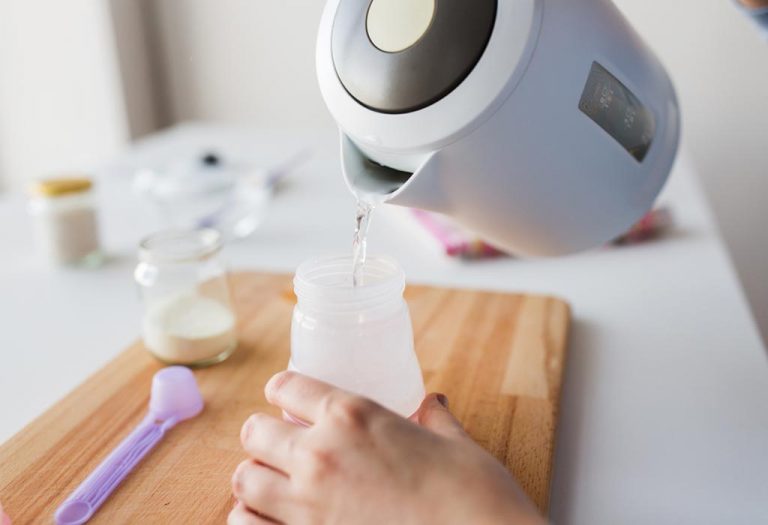
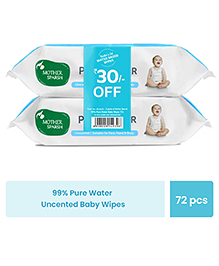
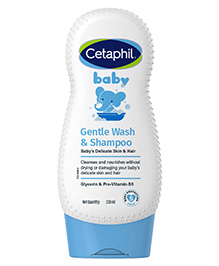
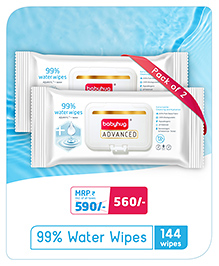
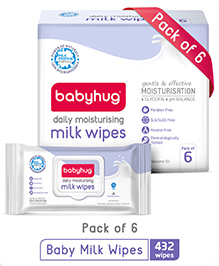
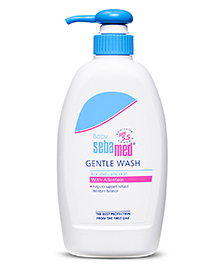
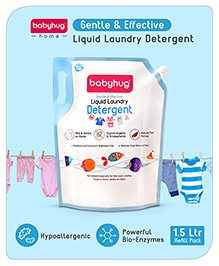
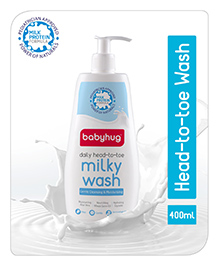

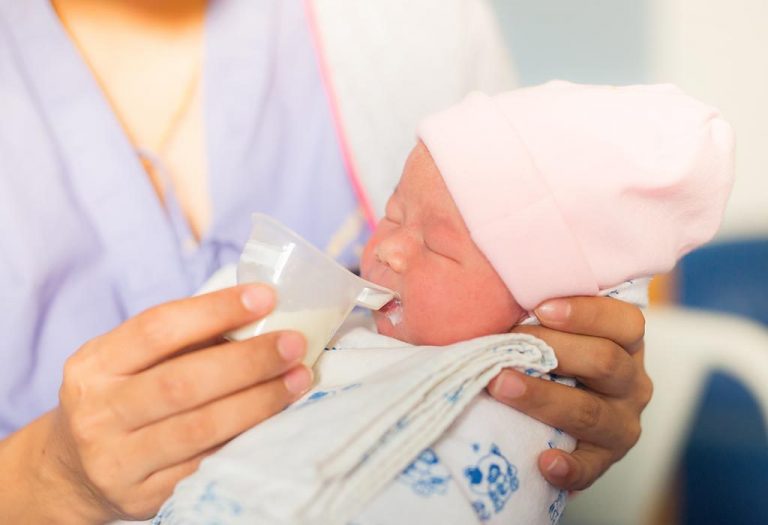
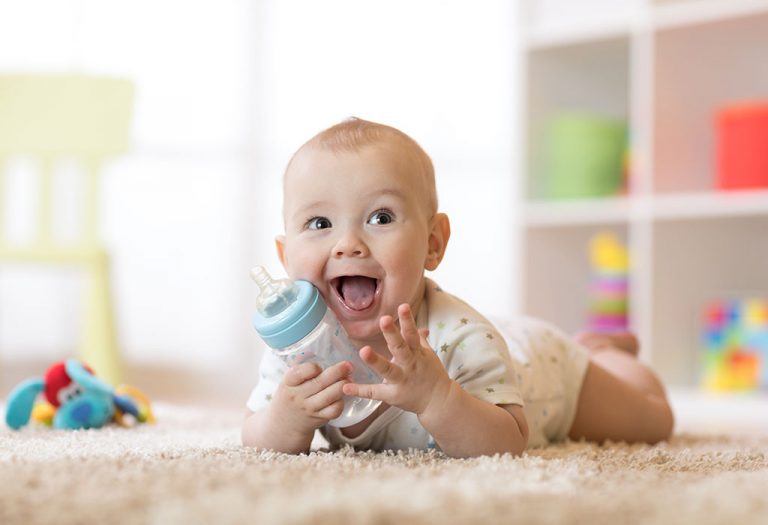


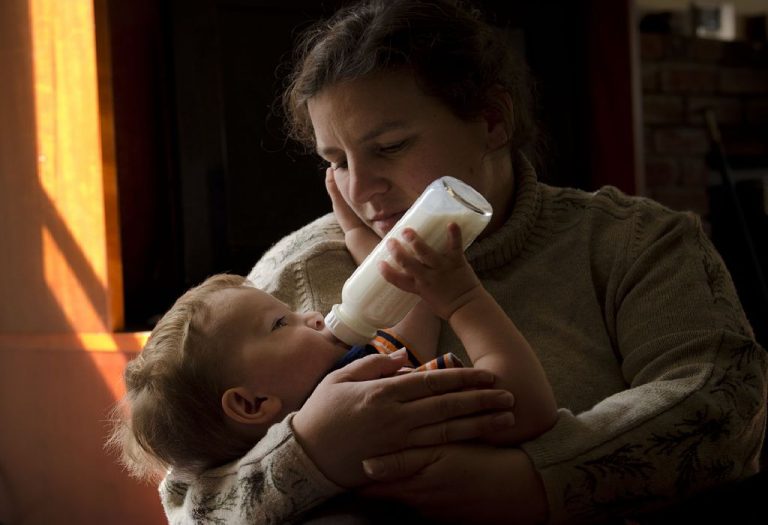
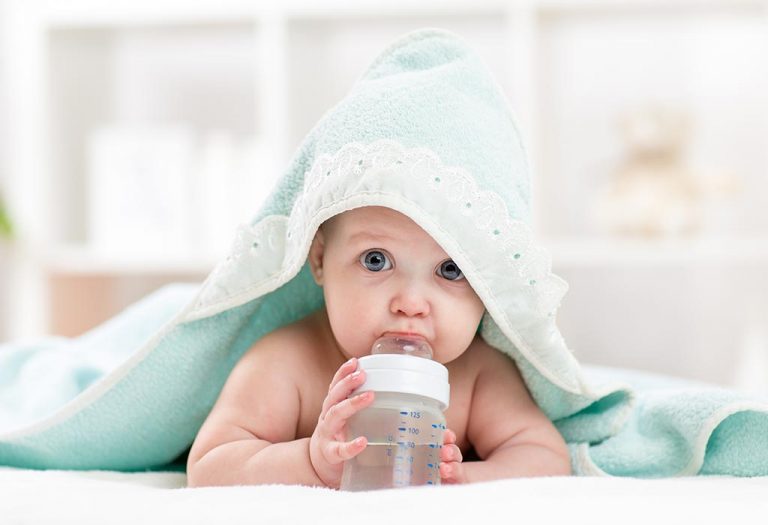

.svg)


















